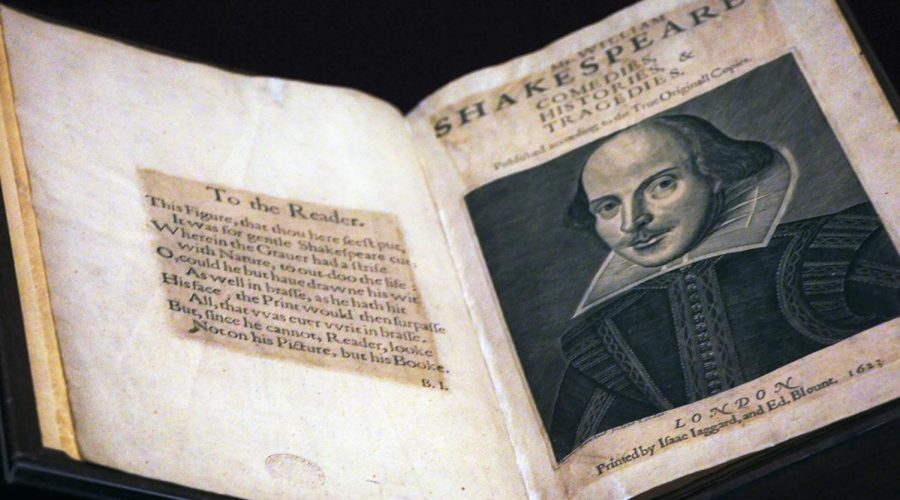With the 400th anniversary of the publication of his complete plays on the horizon, the UTEP English Department will be hosting an event highlighting information on what is known as Shakespeare’s, “First Folio.”
Although the department puts on an annual spring lecture that has happened for decades, the topics change each year.
For the spring 2023 semester, the 38th hosting year in this series, the campus decided to invite Zachary Lesser Ph.D., Edward W. Kane Professor of English at the University of Pennsylvania (UPENN), to speak on how the “First Folio” came to be and why its publication is so significant.
UTEP’s associate professor of English, Andrew Fleck, Ph.D., detailed how the lecture has evolved and how matters like these are chosen.
“In literary studies, once upon a time, our studies were much more formalist. Sort of, here’s this play and we’re going to talk about character development and irony and hypocrisy or something like that,” Fleck said. “Over the last 40 odd years our field has become much more culturally based.”
Fleck also explained the lecture’s unarchived history and how it apparently started as a means of sharing knowledge through a network of achieved scholars. Since then, the English Department has invited professors from many universities to present these topics.
Lesser was invited to speak on this anniversary given his own work within the field and the different perspectives he will bring to the annual lecture.
“Dr. Lesser has done some really remarkable work on the circumstances around the publication of the ‘First Folio,’” Fleck said.
Fleck mentioned how unreputable publishers tried to capitalize on Shakespeare’s work, a publication otherwise known as the Pavier quartos, and how Lesser has new evidence on this issue and how he will be able to tie it into themes.
“What I hope to do is to not simply celebrate this monument to literary creativity but also to show it in a new light, by showing how it might never have been, and how other possible ways of thinking about Shakespeare and publishing his works might have happened instead,” Lesser said. “I think of it as the Shakespeare Multiverse: in alternative pasts, what else could have been the ‘Complete Works of William Shakespeare?’”
Audiences can also look forward to learning why this anniversary and the “First Folio” is so important to present day literature.
“The Shakespeare First Folio might be the most influential secular book ever published in the English language,” Lesser said. “The plays it contains have entertained centuries of audiences, and also inspired rewrites, revisions, adaptations, and contestations by authors from around the world.”
One thing both Fleck and Lesser want people to know is the lecture is for everyone to enjoy.
“I also think it’s exciting to think of the ‘First Folio’ not as this incredibly valuable, rare book that most of us never get to touch, but instead as a fairly mundane business project for people in the book trade in the early seventeenth century,” Lesser said. “What did they hope to get out of it? Why did they think they could make money out of it? And how has their business project from 400 years ago continued to influence our own ideas about Shakespeare?”
“The Complete, Incomplete, and Alternative Works of William Shakespeare: After the First Folio, and Before,” lecture will take place from 6 p.m. to 7:30 p.m., April 20, at the Undergraduate Learning Center, room 126.
Meagan Garcia is the arts & culture editor and may be reached at [email protected].












